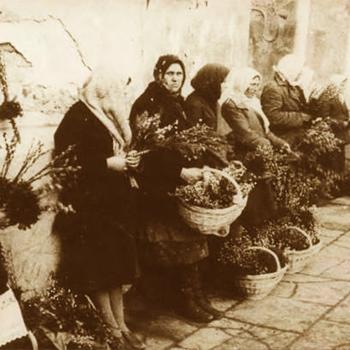 Tradition gives this as the day that Constantine had his famous vision of a heavenly cross and the divine words “In this sign, Conquer.” The following battle led directly to the consolidation of the Empire under his singular control.
Tradition gives this as the day that Constantine had his famous vision of a heavenly cross and the divine words “In this sign, Conquer.” The following battle led directly to the consolidation of the Empire under his singular control.
It would also play a significant role in the evolution of the dominant form of Christian faith.
As we roll headlong toward our national election not a bad time to pause, if briefly, and think about the connections between church and state.
In fact with only a couple of brief exceptions it has only been in modern times that there has been any serious attempt to untangle these two threads of human society. And, to be honest about it, any untangling is at best tentative. In our nation the dominant current of faith assumes its natural role as articulating the faith of the country, and tends to weave political pronouncements from the pulpit with little concern for sanction. While minority religions of necessity walk their way a bit more carefully.
Perhaps because my faith runs against the dominant current, I really like the idea of separation of church and state.
I hope I also think this because pluralism is a signal part of the great experiment that is the American republic. And I consider this a great good. The meeting of many different perspectives has been an enriching one for our people, and offers a beacon for those of other nations.
So, I try to embrace the “bright lines” of separation, and consider the more ambiguous places. I have no problem with our not pronouncing official choices for president or other offices at the church or in its official publications. And while where a personal blog by a minister fits into all this is certainly ambiguous, out of respect for that ideal of separation, I’ve decided to cease my comments on specific candidates for political office. I’ve twitched from time to time over this decision, particularly since this is by no means settled.
And my constant unease is because there are two goods in conflict here.
On the one hand the separation is a powerful good in a pluralistic society.
On the other hand if one’s faith stance isn’t informing one’s political decisions, it suggests one doesn’t have much of a faith.
So, here we are a scant week ahead of an epoch changing election.
And as an actively engaged person of faith I know everything I’ve found in my disciplines and reflections are thrown into what I think about this election.
There is no doubt my faith informs what I’m going to do.
And I’m committed to counseling those who have trusted me with religious leadership to do the same thing.
And in the midst of this process, crowding up against all the other emotions, slowly, slowly overtaking them and becoming the dominant current of my thought and feeling is one.
And that one lovely feeling is hope.












